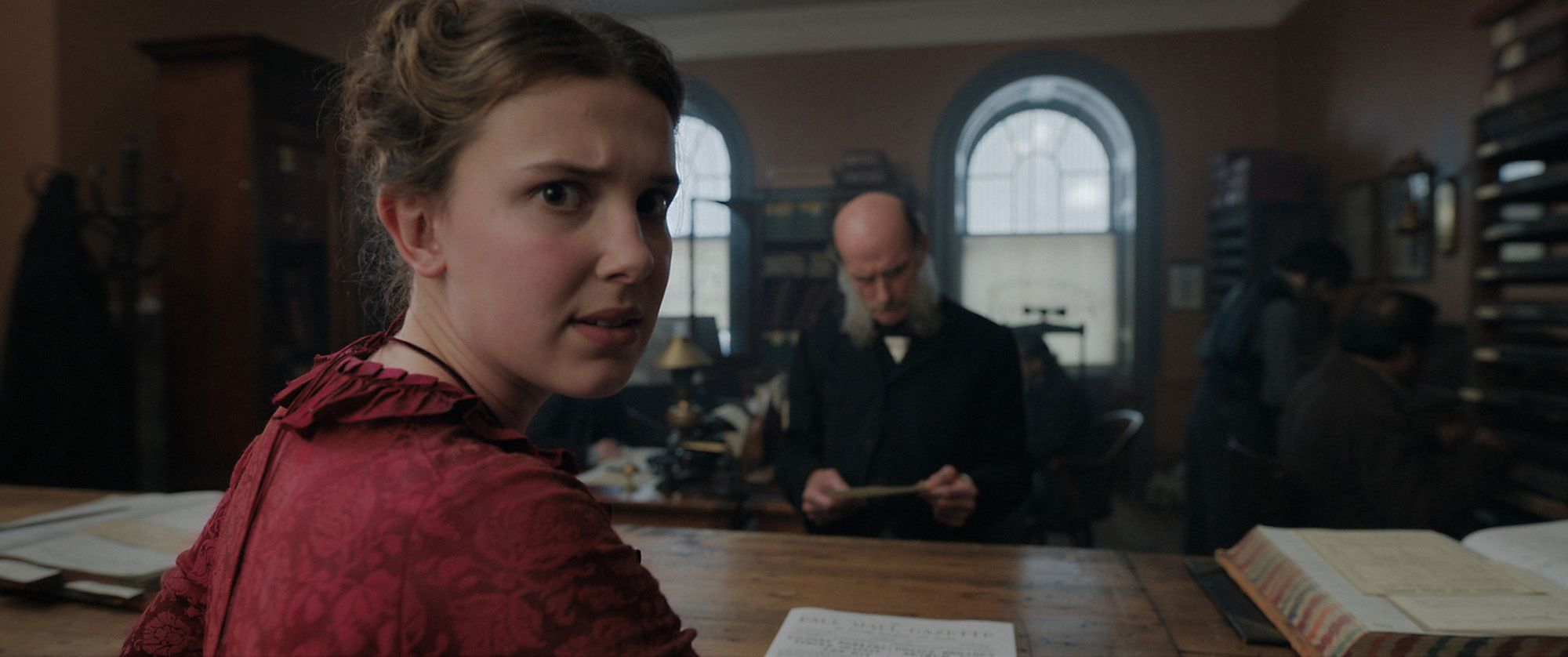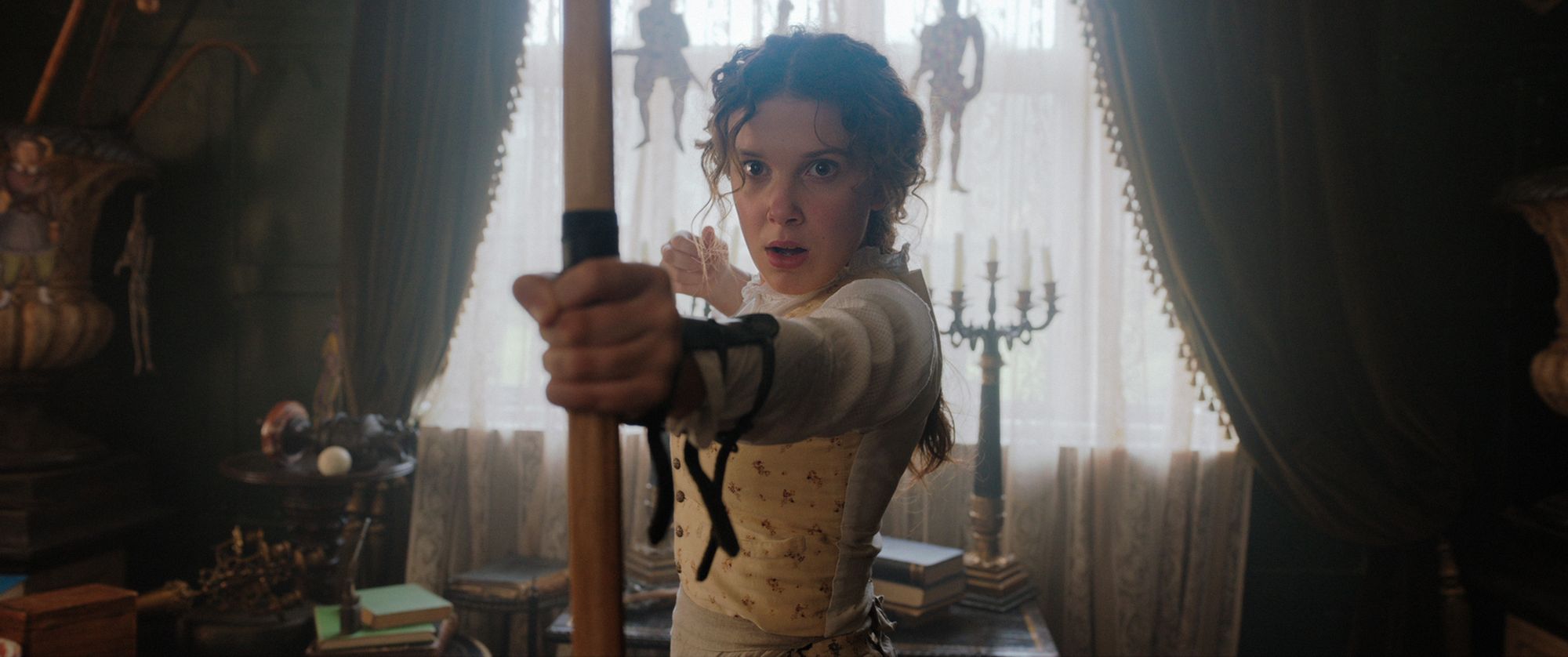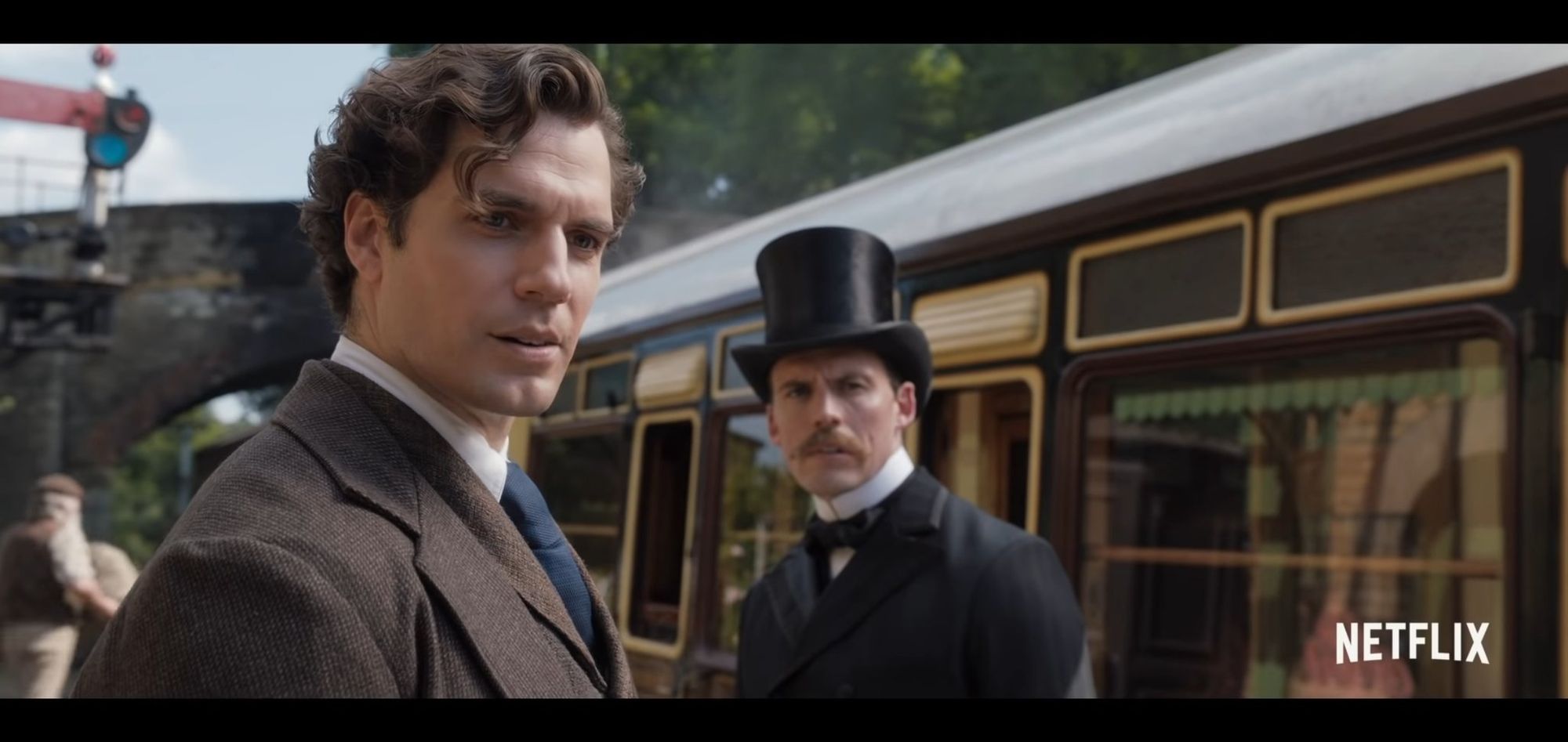By Isha Vibhakar, Second Year, Theatre and Film
It wouldn’t be fair to say that Enola Holmes (2020) is a result of a customary obsession of bestowing Sherlock Holmes with a sister, because even though it is in a way, the film repeatedly asserts that the name Enola, spelt backwards is ‘alone’, and thus this story is strictly about her.
Adapted from the book series by Nancy Springer, Enola Holmes is translated for screen by Jack Thorne and directed by Harry Bradbeer, who has extended his Fleabag-esque direct address approach in this film due to the avant-garde nature of the character stranded in a classic Victorian setting.

The film centres around Enola (Millie Bobby Brown), who lives with her widowed mother, Eudoria (Helena Bonham Carter) in their family home where they engage in all sorts of physical and mental activities that were forbidden for women in that era. It is when her mother disappears on her sixteenth birthday, leaving her with a series of cryptic clues that she’s reunited with her two unavailable elder brothers, Mycroft and Sherlock. These are obligatory appearances, both in her life and the film. Set against the backdrop of the Third Reform Act of 1884, the film follows the escapades of Enola running away from her brothers to find her mother and ‘rescuing’ fellow runaway, Lord Viscount Tewksbury (Louis Partridge) when she gets caught up in a conspiracy against him.
'The future is up to us', is the piece of motherly advice that sets the tone for the film. Be it the dismissive Mycroft (Sam Claflin) imposing his patriarchal standards upon Enola by sending her off to a ‘finishing school’ to become more ‘acceptable for society’, or Miss Harrison (Fiona Shaw), the headmistress of the finishing school – the central conflict revolves around the fight for female liberation.
The female representation in this film extends to those demanding change and those resisting it. On one hand, there’s Eudoria, who we mostly see in flashbacks: a suffragist herself, home-schooling Enola and giving her an unconventional education involving jiujitsu. While on the other, there’s Miss Harrison, encouraging us ‘to live a full and vibrant life – not with anger and endless questions but with answers’.

Flower motifs dominate the entire narrative as ‘irises’ (code word for messages) are constantly conveyed through foliage. Even the Viscount who later creates a diversion for his killer and hides in the Covent Garden Market as a florist, uses this knowledge and impresses Enola. The most striking revelation of Enola’s calling as a young female detective can be traced back to the pinecone named ‘Dash’ she had as a child, which later reprises itself as an artefact that ends up killing Linthorn (Burn Gorman).
Enola does warn Sherlock (Henry Cavill) by saying, ‘you’re being emotional. It’s understandable but unnecessary; and yet evidently, this stayed only within the premise of the film. Sherlock’s depiction of a brother developing the capacity for emotion caused the Doyle to file a lawsuit against Netflix for being a kind, supportive older brother.

Over all, the film is a visual treat as it straddles perfectly between the landscaped countryside and London. The background score by Daniel Pemberton captures the true Victorian essence of endearing maternal love and loss and intense emotional conflict. Millie Bobby Brown plays a sprightly Enola Holmes with incisive insights into her character by delivering asides where we get to unravel the mystery with her. It is one thing for the main character to break the fourth wall, but when someone else does it, the impact is incredulous. Bradbeer does this again; he exposes the real villain when she looks right into the camera as Tewksbury tells her, ‘your time is over’. That is definitely one scene to look out for!
Featured: Robert Viglaski / Legendary Pictures, Netflix
Will you be watching Enola Holmes? Let us know!









